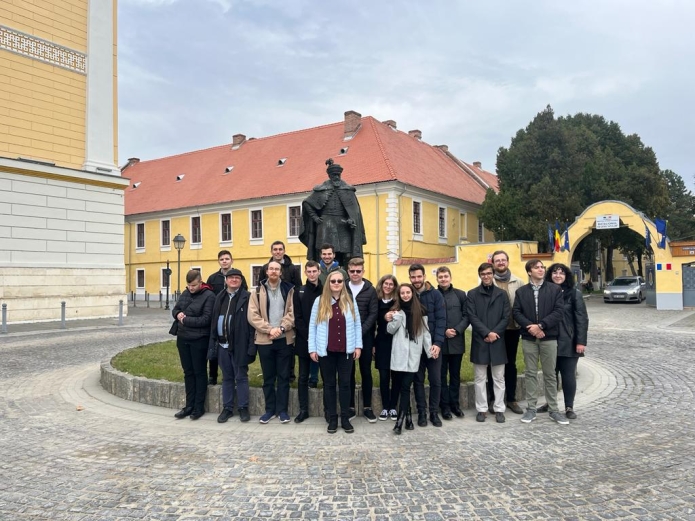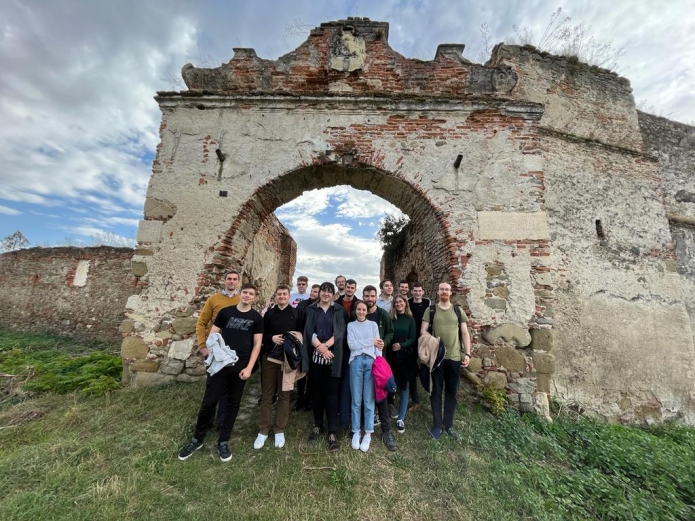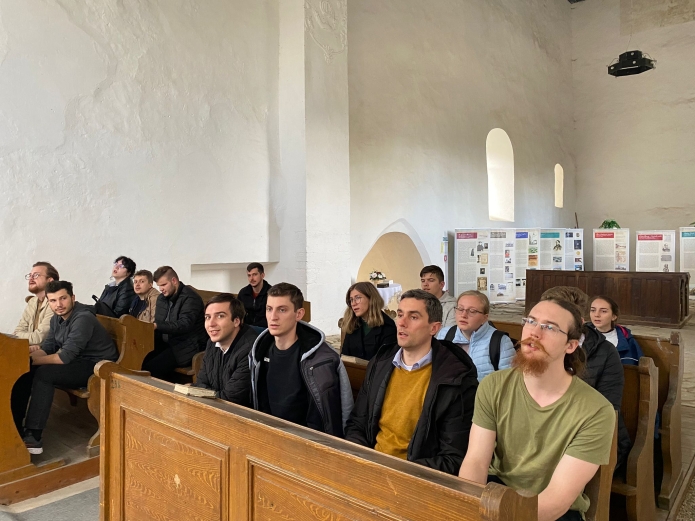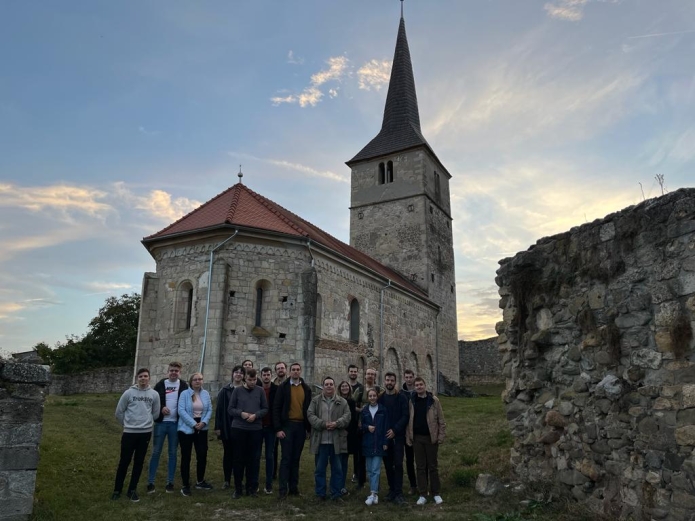Between October 20 and 22, the fourth-year students of our Institute visited the area around Gyulafehérvár. The study trip set dual goals for itself. On the one hand, to explore and discover the Reformed heritage of the region, and on the other hand, to progress on the path of self-discovery and preparation for service through group discussions and Bible classes.
Fourth-year on a study trip to South Transylvania




The history of the Hungarian community in the vicinity of Gyulafehérvár (now Alba Iulia) dates back to the Árpádian era. Villages and towns such as Magyarigen, Boroskrakkó, or Alvinc were already significant settlements in the 13th century, while the history of Gyulafehérvár extends back to the Roman period.
One of the main actors in the events spanning the long period up to the present day has been the Reformed Church. Therefore, between October 20 and 22, the fourth-year students of our Institute visited the region. The study trip had a dual purpose: to explore and discover the Reformed heritage around Gyulafehérvár and to progress on the path of self-discovery and preparation for service through group discussions and Bible classes.
On Friday morning, Sándor Előd Ősz, associate professor of the Department of Church History, guided the fourth-year students, presenting the important sights of Gyulafehérvár. The first stop was the Episcopal Palace, which served as a princely center during the 16th-17th centuries under the rule of Zsigmond János, Gábor Bethlen, and I. György Rákóczi. After an overview of the work of the bishops depicted in the impressive ceremonial hall and the paintings decorating it, the theologians heard timeless lessons of perseverance and faithfulness to God in the Márton Áron Memorial Room.
We received a tour in the famous Battyhány Library of Gyulafehérvár. As it turned out, the collection, numbering over 110,000 volumes, hides numerous church treasures. The oldest book is the 9th-century Codex Aureus, preserving the Gospels, which has been divided into two parts over time, with the other half currently kept in the Vatican. Additionally, many volumes by Szenczi are found in the collection, and their research is conducted by our teacher Sándor Előd Ősz. The fourth-year students listened to the midday bells near the tomb of János Hunyadi in the Cathedral after that. They then walked to the former Collegium Academicum building, the statue of Gábor Bethlen, and other notable points of the castle.
The venue for Friday afternoon was the Bod Péter Center of the Reformed Congregation in Gyulafehérvár, where the theologians discussed the challenges of preparing for service with their year leader. Having completed more than half of their theological training, how prepared do the theologians feel, and what fears and tasks occupy their minds? The Saturday morning Bible class was also connected to this, where the fourth-year students examined the personalities of the disciples based on the Scriptures. In the stories of Peter, Paul, and James, it became clear that in God's church, there is a place for fiery doers, calm strategists, as well as for simple words and persistent work.
Saturday afternoon included visits to Alvinc, Magyarigen, Boroskrakkó, and Marosszentimere. The welcoming pastors (assistant Pastor Szidónia Asztalos and missionary Pastor Csaba Szász from Magyarigen) not only enriched the theologians with interesting historical facts, such as Bod Péter's church-building plans in Magyarigen or the escape of the Sárospatak College four years ago in Boroskrakkó but also shared insights into the realities of the congregations. None of these settlements has a population exceeding 30. However, there are attempts to revitalize, such as filling church properties with young Reformed families and reoccupying the ancient heritage. Thus, Magyarigen, which had only 6 souls in the 1980s, now boasts 26 congregational members. In the evening discussions, the students expressed how poignant it is to see the old heritage, not just the declining Hungarian population but the remnants of a vanished nation, where both in the church life and in national consciousness, only the most basic needs must and can be satisfied.
The program concluded on Sunday morning. Titus Pop, a student from the group, served in two places, Alvinc and Gyulafehérvár. This was a fitting end to the study trip: observing the traces of transience, looking to the Eternal, and rejoicing in the priceless treasure. There can be no other consolation for the Christian, but also for the theologian entering the service of Christ.
The study tour was made possible with the generous funding of the Fundament Foundation from The Netherlands.